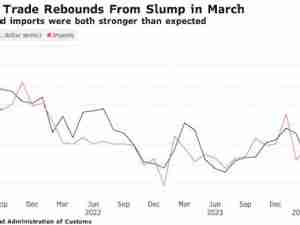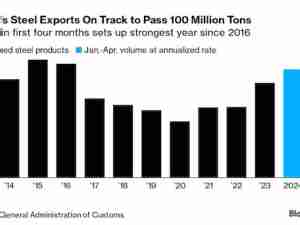Brexit negotiations are picking up pace ahead of a European Union summit this month expected to kick-start three months of talks to decide the U.K.’s future relationship with the bloc. After Theresa May laid out her vision last week, the EU is due to publish its draft position on Wednesday.
The European Parliament’s chief Brexit negotiator Guy Verhofstadt is in London on Tuesday to meet May and Brexit Secretary David Davis, who then gives evidence to Parliament’s Brexit scrutiny committee at 2 p.m. French Economy Minister Bruno Le Maire is also in London to meet his counterpart, Chancellor Philip Hammond, and has already warned the U.K. that it can’t expect financial services to be included in a free-trade agreement with the EU.
In Brussels, Davis’s EU counterpart Michel Barnier meets Arlene Foster, leader of the Democratic Unionist Party—which props up May’s government and is a key player in the negotiations over the solution for Northern Ireland’s border.
We will be following developments here in real time. Time stamps are London.
EU Draft Text ‘United’ DUP, Tories, Labour (4:50 p.m.)
“All have been clear that no British Prime Minister could ever accept the draft legal text,” the DUP said in a statement after leader Arlene Foster’s meeting with Barnier, referring to the EU’s draft Brexit deal published last month. “The fundamental problem as it currently stands is that it challenges the economic and constitutional integrity of the United Kingdom.”
Davis Expects EU Demands on Workers’ Rights (3 p.m.)
Davis says EU may ask the U.K. to make commitments to International Labour Organization standards on workers’ rights in a trade agreement—as it did in the Canadian deal. He reiterates that the government isn’t seeking to water down protections after Brexit.
Davis Echoes May on U.S.-Canada Border (2:51 p.m.)
“Large parts of the Canadian border—not the choke points around Detroit, for example—are open,” Davis says, after the prime minister’s similar comments on Monday in the House of Commons. As we pointed out then, the Irish prime minister has already rejected this approach. Read more: Ireland Has Already Rejected May’s U.S.-Canada Border Model
Davis Contradicts Hammond on Planning for No Deal (2:33 p.m.)
Davis seemed to contradict Chancellor Philip Hammond over how much time and money the government should spend preparing for a potential failure of talks to reach a deal.
On Monday, Hammond told the same committee that he would cease spending money on preparations for a no-deal Brexit in 2019 as soon as the transition period—due to last until 2021—is agreed. But Davis said that while he expects a transition agreement later this month, it would not be prudent to stop planning for a no-deal Brexit happening in 2019.
This is because the Brexit deal won’t legally binding until after it is signed by both sides and ratified by the European Parliament and the U.K. Parliament.
“It’s always possible—it’s highly improbable but always possible that the deal will come apart at the end for some wholly unpredictable reason,” Davis said. “A responsible government has to be ready for that outcome.”
Davis Wants Bulk of Trade Deal Done Before Brexit (2:18 p.m.)
There had been some signs that the October deadline was slipping, but Davis is holding to it: “We intend to conclude the substantive negotiation, later this year. October is the target. Thereabouts, anyway.”
Read more: EU Is Said to Plan Vague Trade-Deal Offer in Blow to U.K.
Davis says much will depend on the outcome of the EU summit this month. “The will is there with us, the question is if it’s there on the other side. We’ll know after March 23.”
Davis also responds to doubts from the EU that the U.K. can remain a member of various regulatory agencies after Brexit. Stefaan De Rynck, an adviser to EU chief negotiator Michel Barnier, indicated late on Monday that the plan raised potential conflicts.
“We may or may not be able to do it,” Davis said. “That’s why we say we’re exploring it.”
Read more: Barnier Aide Casts Doubt on Key Plank of May’s Brexit Plan
Davis Declines to Answer on ‘Meaningful Vote’ (2:26 p.m.)
The early exchanges are testy, and Davis declines to answer a question on Parliament having a “meaningful” vote on Brexit. “I don’t view a meaningful vote as overruling the referendum, if that’s what you mean,” he says.
He’s more upbeat on the progress of negotiations. “The prospects of getting to an outcome by march 23 are good,” Davis says when asked about the prospects of changing the EU’s draft legal text. “The expectation is there.”
Davis says there are 11 areas of differences with the EU, though he can’t list them all from memory.
Davis Calls Verhofstadt Meeting ‘Constructive’ (11:36 a.m.)
“Particularly his message about the rights of citizens across Europe,” Davis says in a tweet, without giving details.
Earlier:
- EU Is Said to Plan Vague Trade-Deal Offer in Blow to U.K.
- Barnier Aide Casts Doubt on Key Plank of May’s Brexit Plan
- Ireland Has Already Rejected May’s U.S.-Canada Border Model
- France Rules Out U.K. Bid to Include Services in EU Trade Deal








